If I ask you what the first true “coupe utility” pickup based on a Big Three family station wagon was, you’ll probably say it was the Chevrolet El Camino. That’s what I always thought, and I just assumed the identical-formula Ranchero was merely Ford glomming onto the idea, hoping to get a piece of the action that was being ejoyed by Chevy’s slick concoction.
Wrong! The Ford Ranchero predated the first El Camino by several years with the concept of a half-car, half-pickup that didn’t sacrifice style for utility. A few weeks back, I looked at a modern-day interpretation of Chevy’s “coupe ute” on an EV chassis, and a few Blue Oval fans let me know that Ford should get some equal time for this exercise. I’m happy to do it!
All Work And All Play At Once
Some of you Autopians will correctly state that the idea of a car-based pickup was something that went back to the days of Ford Model Ts, and that in Australia such “utes” were a commonplace sighting for decades ahead of the Ranchero and later El Camino. That’s all true, but those early examples almost always put substance over style in their execution; they were built simply because it was the easiest way to get a mock pickup truck. No thought was put into making a glamorous party-in-front-business-in-back machine.

That changed with the Ranchero. Introduced for 1957, our Mercedes Streeter had this to say about it:
When Ford unveiled the Ranchero in December 1956, the F-Series was in its third generation. Ford marketed the Ranchero as being more than a car while also being more than a truck. The premise was that the Ranchero was a glamorous car and a hard-working truck all in the same package. Ford also noted that the Ranchero’s over half-ton payload was more than some of the trucks on the market at the time. In fact, the trucklet even bested the half-ton F-Series by about 50 pounds of payload. The Ranchero appeared to be the best of both worlds. It was low-slung, allowing both easier bed loading and better handling. Ford also boasted about the Ranchero’s car-like looks, which meant it could be welcome places a work truck couldn’t. Today, Ford calls the Ranchero its first compact pickup.
The first Ranchero was based on the 116-inch wheelbase Ranch Wagon and Courier Sedan Delivery. The trucklet featured a reinforced bed and at launch, the smallest engine available was a 223 cubic inch six-cylinder making 144 HP while the largest was a 292 cubic inch V8 making 212 HP.

Like the Ranchero, the El Camino that debuted in 1959 was based on Chevy’s standard-sized car. However, Ford then made the odd choice for 1960 by putting the second-generation Ranchero onto the Falcon platform, creating a much smaller product that was arguably barely a coupe ute at all (and it was initially called “Falcon Ranchero”).
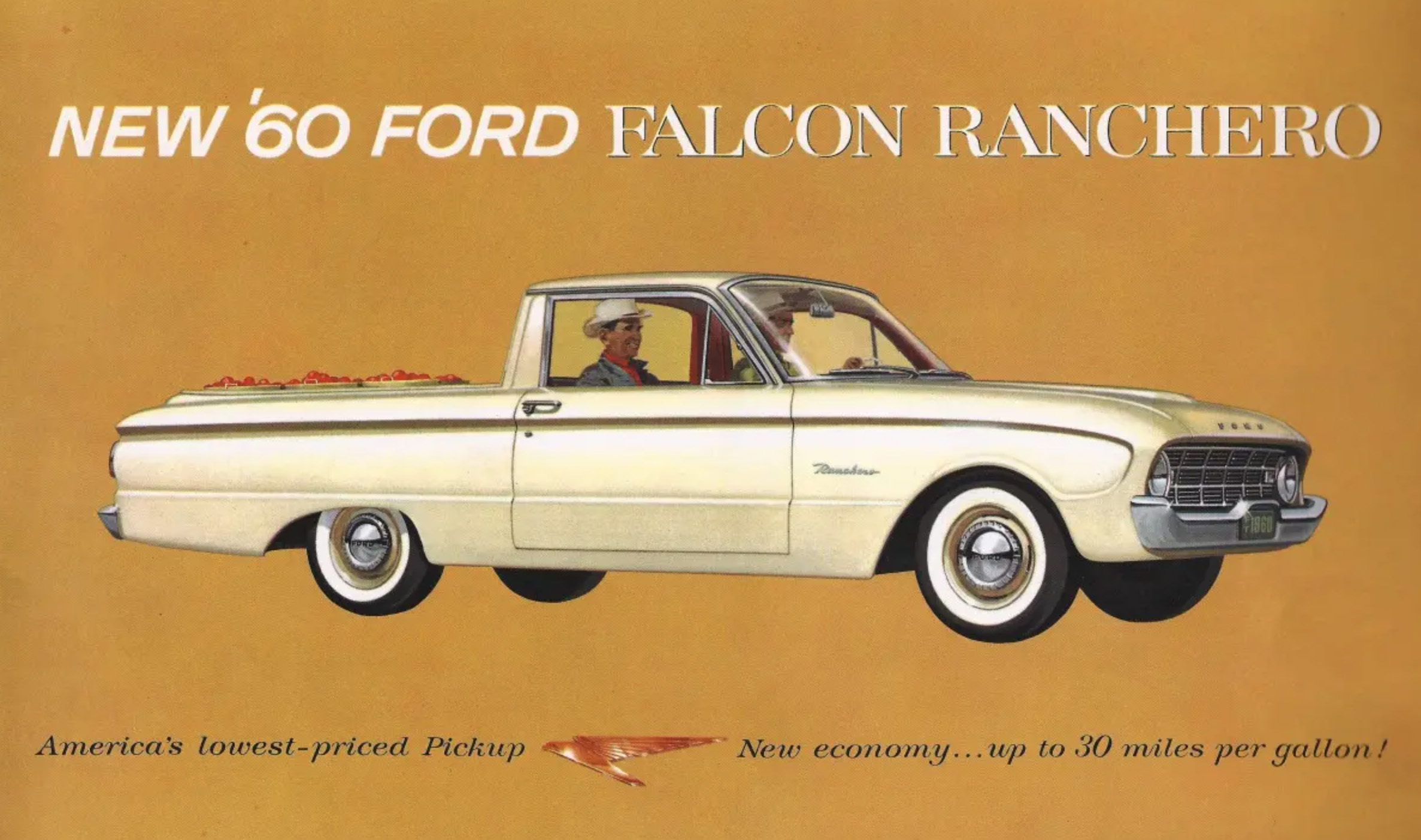
It got even stranger for the third generation Ranchero, which in 1966 featured a front clip from the Falcon and then switched to the sheet metal of the Fairlane the following year! Otherwise, they were exactly the same car, or truck, or whatever you want to call it.

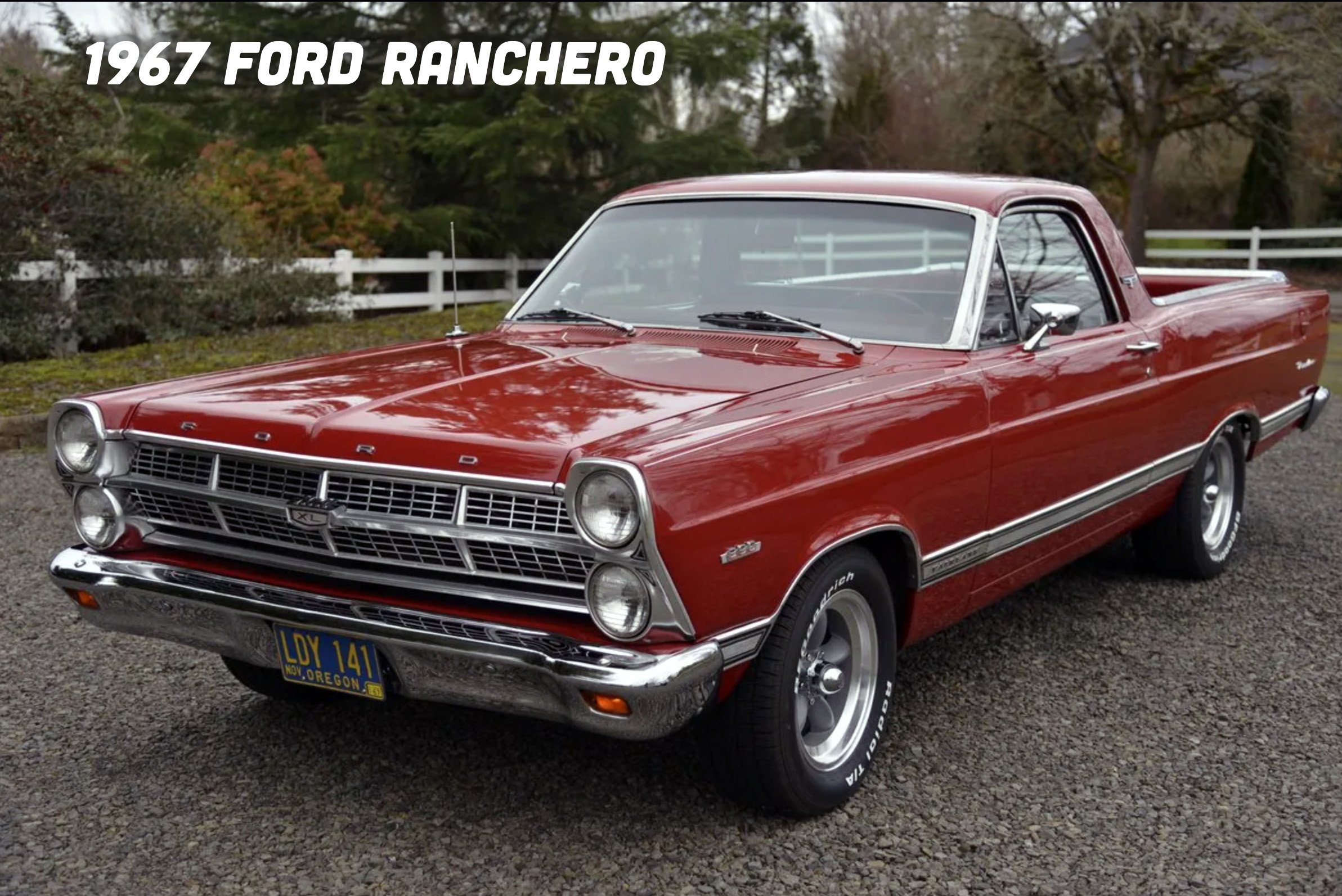
Fourth through seventh generation Rancheros that followed were all based on the mid-sized Torino, essentially putting them head-to-head with the El Camino which had shifted to the Malibu wagon chassis when it reappeared after a four-year hiatus in 1964.
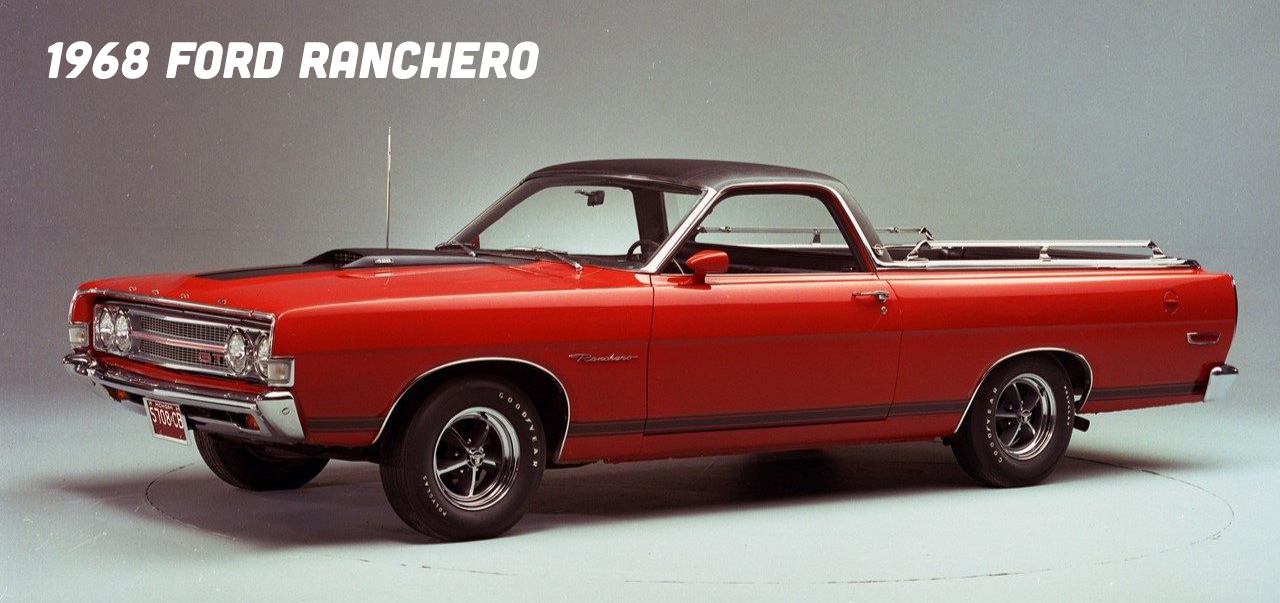
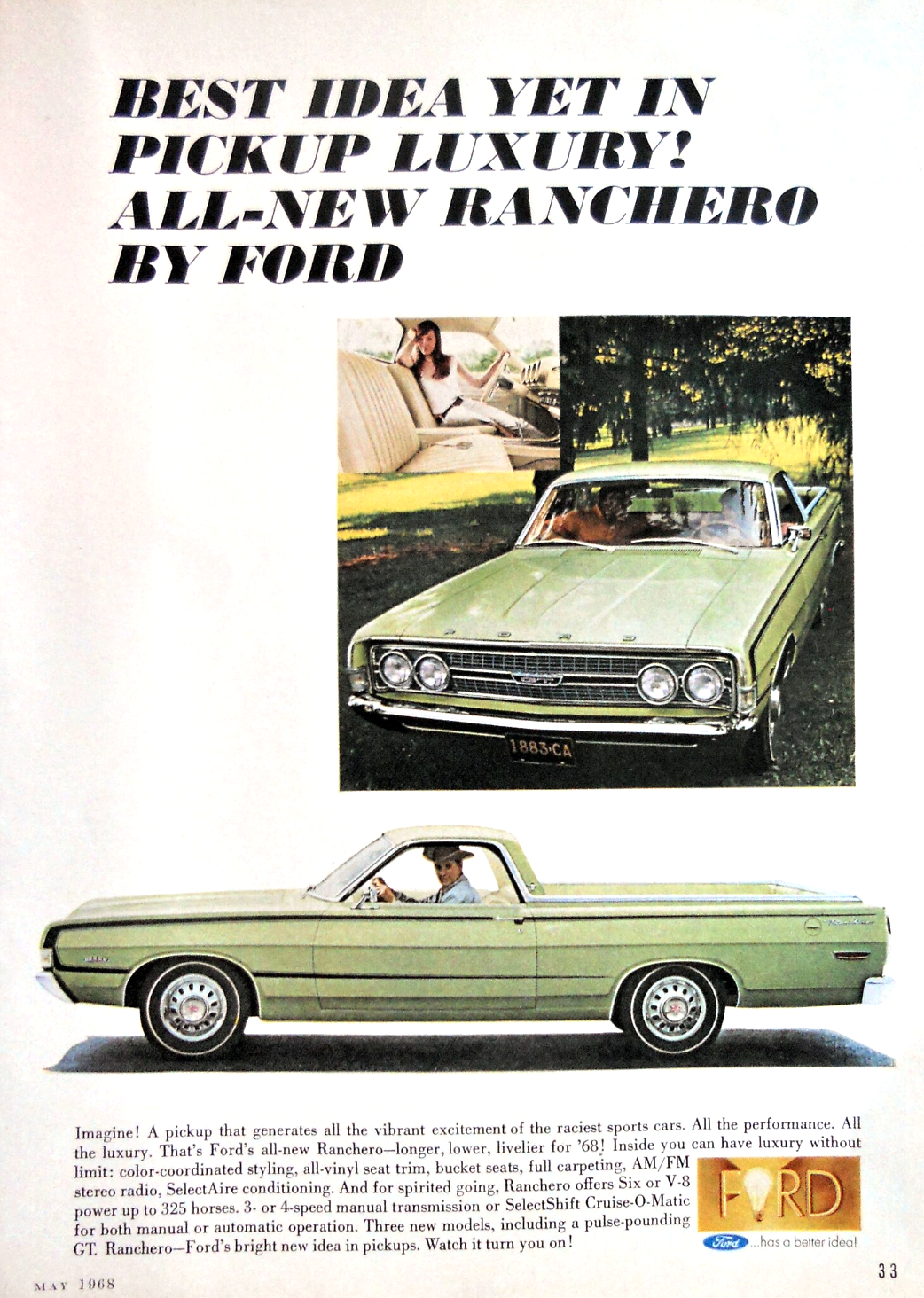
By the mid-seventies that Ranchero was getting more flabby and flashy, especially the models that shared the front end with the Starsky & Hutch era Torinos:
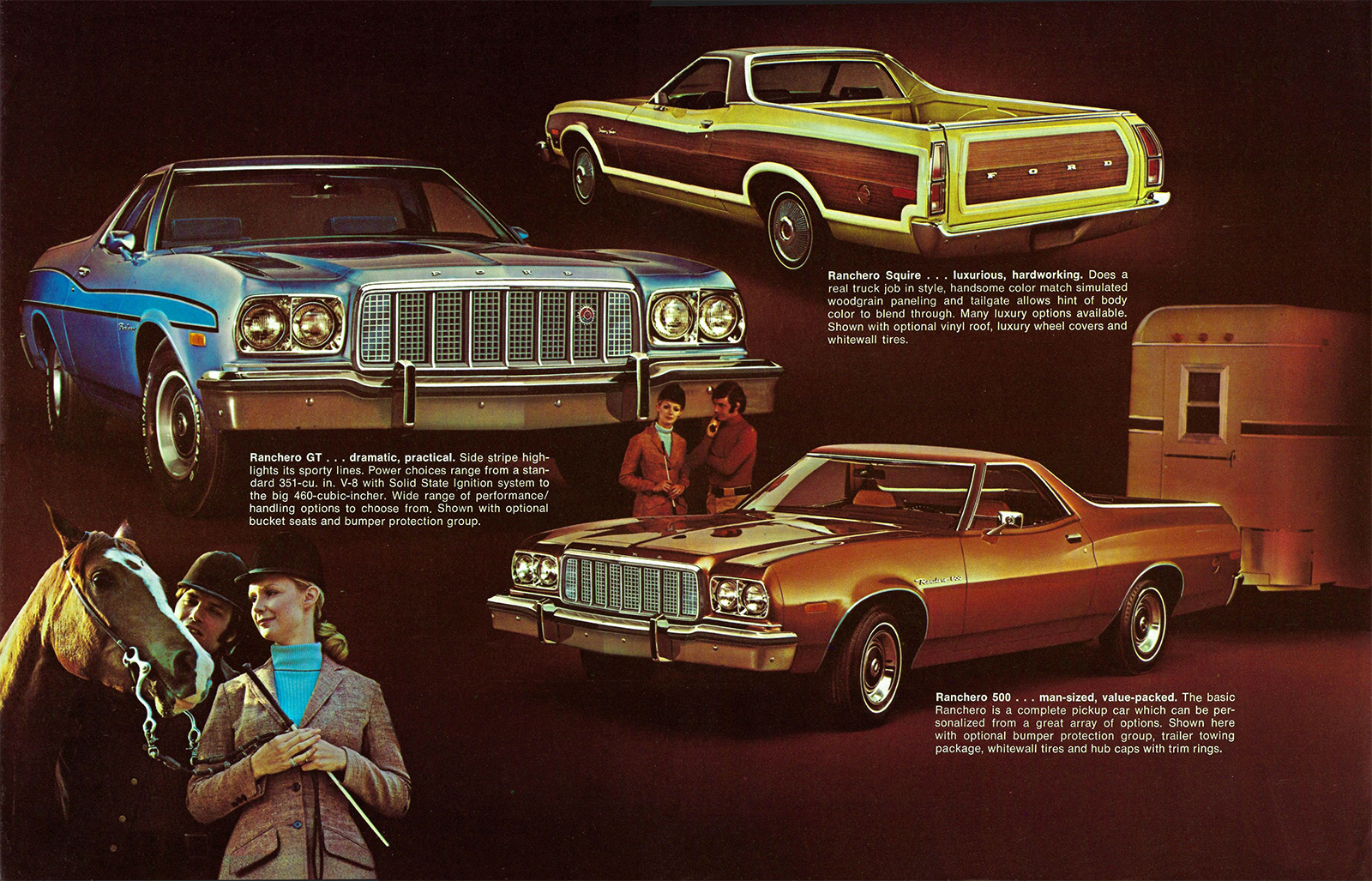
The final example was built in 1979 when the Torino-based LTD II ended production, by which time it was larger than the “full sized” Panther LTD sold alongside it.


The El Camino outlived the Ranchero by eight years, and Ford’s outsourced attempt at a Fox-body-based new coupe ute called the Durango (which Mercedes Streeter wrote about) was short-lived.
With all of these different shapes and sizes of Ranchero over a two-decade span, you’d think it would be hard for me to choose just one as an inspiration for a modern redux. Actually, it took me about three milliseconds to make the decision, and I think you’ll agree why.
Cobra Under The Hood And Yer Dawg In The Bed
To many, the year 1970 was the pure high-water mark of American muscle cars; the styling was better than ever and power was at its peak in the golden hour before the fuel crisis, rising insurance rates and emissions controls quickly sunset the whole genre. Since these muscle machines were typically based on mid-sized Big Three sedans, it was easy to use go-faster bits from things like the Chevelle SS454 to make hot versions of the El Camino. For Ford, it was the legendary Torino GT that lent its provenance and name to the ultimate Ranchero that our Mercedes Streeter wrote about some time ago.
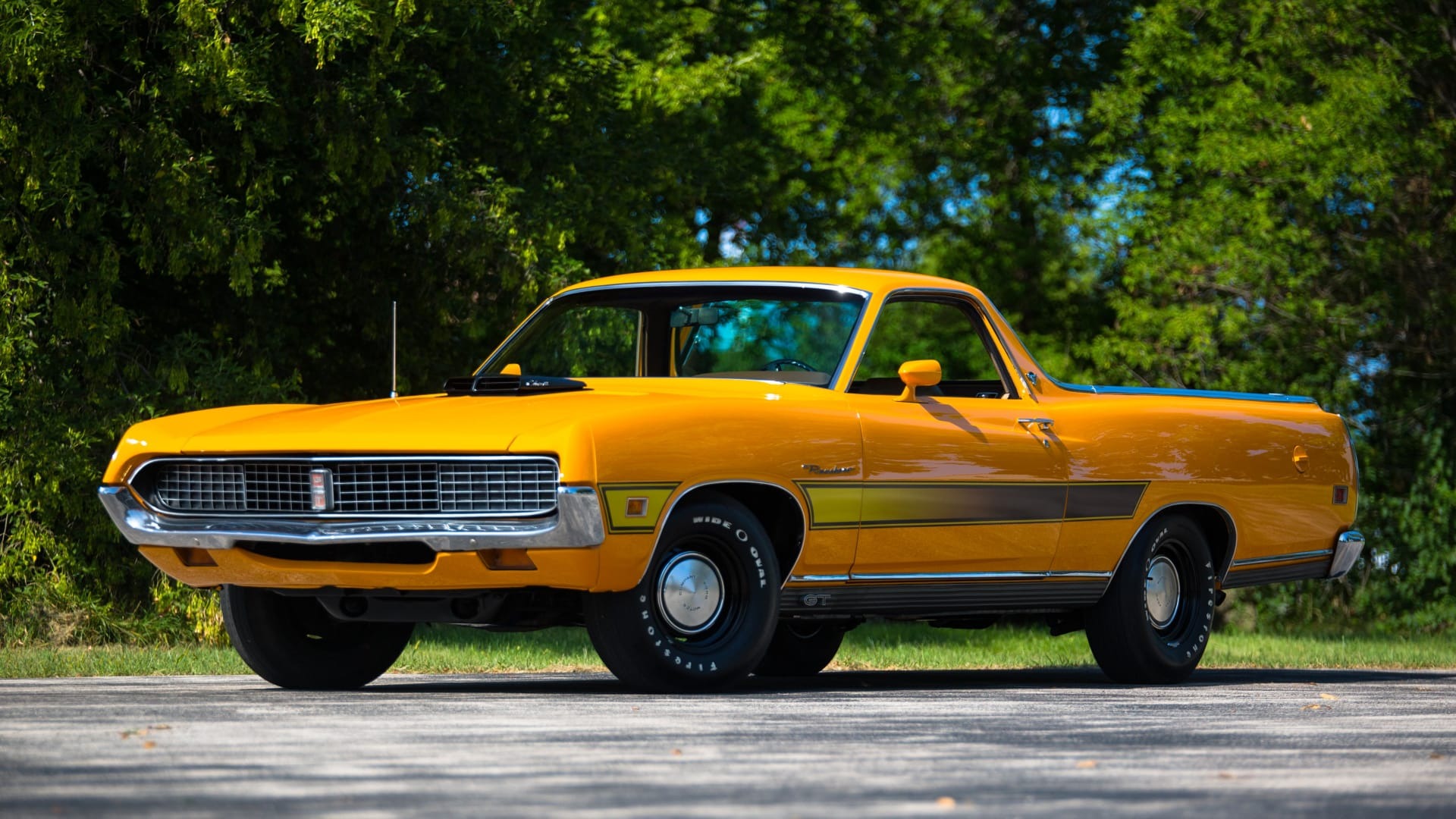
Based on car brochures, you’d think that everyone in the seventies was either hang gliding, hot air ballooning or scuba diving:

Ford’s fifth generation Ranchero GT could be had with the ultimate drivetrain of a 370 horsepower 429 Super Cobra Jet V8 and even a four-speed manual transmission, though reportedly on about 12 buyers actually checked all of those boxes (this yellow example obviously isn’t one of them). Even with lesser motors and ostensibly less weight than the sedan, you’d imagine that this GT was a force to be reckoned with.

It’s also quite attractive; the Torino on which it’s based was reportedly one of the favorite-styled cars that Lee Iacocca said he’d ever worked on. Arguably, it’s even more fetching than the El Camino of the same time frame, but with those covered headlights and swooping fenders it’s not a “nice” appearance: it’s just a terrifying and sinister looking vehicle. I still have no idea why those smooth dog dish hubcaps on early seventies performance Fords look so damn good.

You could get the 1970 Ranchero in other flavors as well if the GT was a bet too much greasy kid stuff for your equestrian tastes:

There’s no question that this fifth generation Ranchero will inspire our 2026 version, and there’s one family-sized station-wagon-like Ford with the acceleration to do the GT name proud that we can base it on: the Mustang Mach-E.
Get Ready For Ranch-Aero
Based on an earlier post I did, Chevy’s electric Blazer might have made a good current El Camino. The concept was pretty well received from you readers, but most were skeptical of my bizarre way of letting it expand from the full-sized pickup bed to four-seater. Many were afraid that the mechanism would be a trouble- and leak-prone disaster. I think I have a better way to get more passengers in my revived Ranchero.
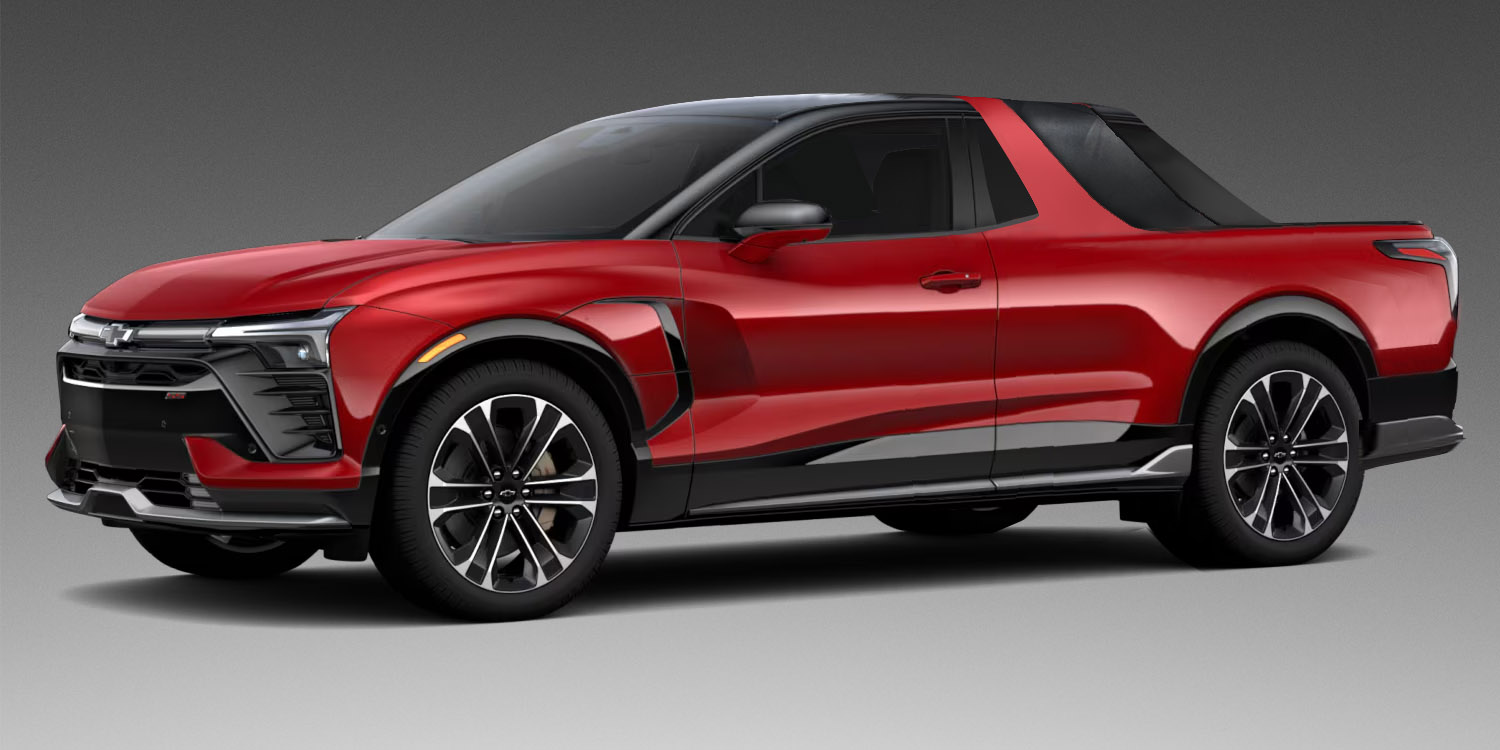
I’ve also already explored how the Mach-E might have been a good candidate for a modern-day fifth-gen Torino, but I never really delved into the Ranchero.
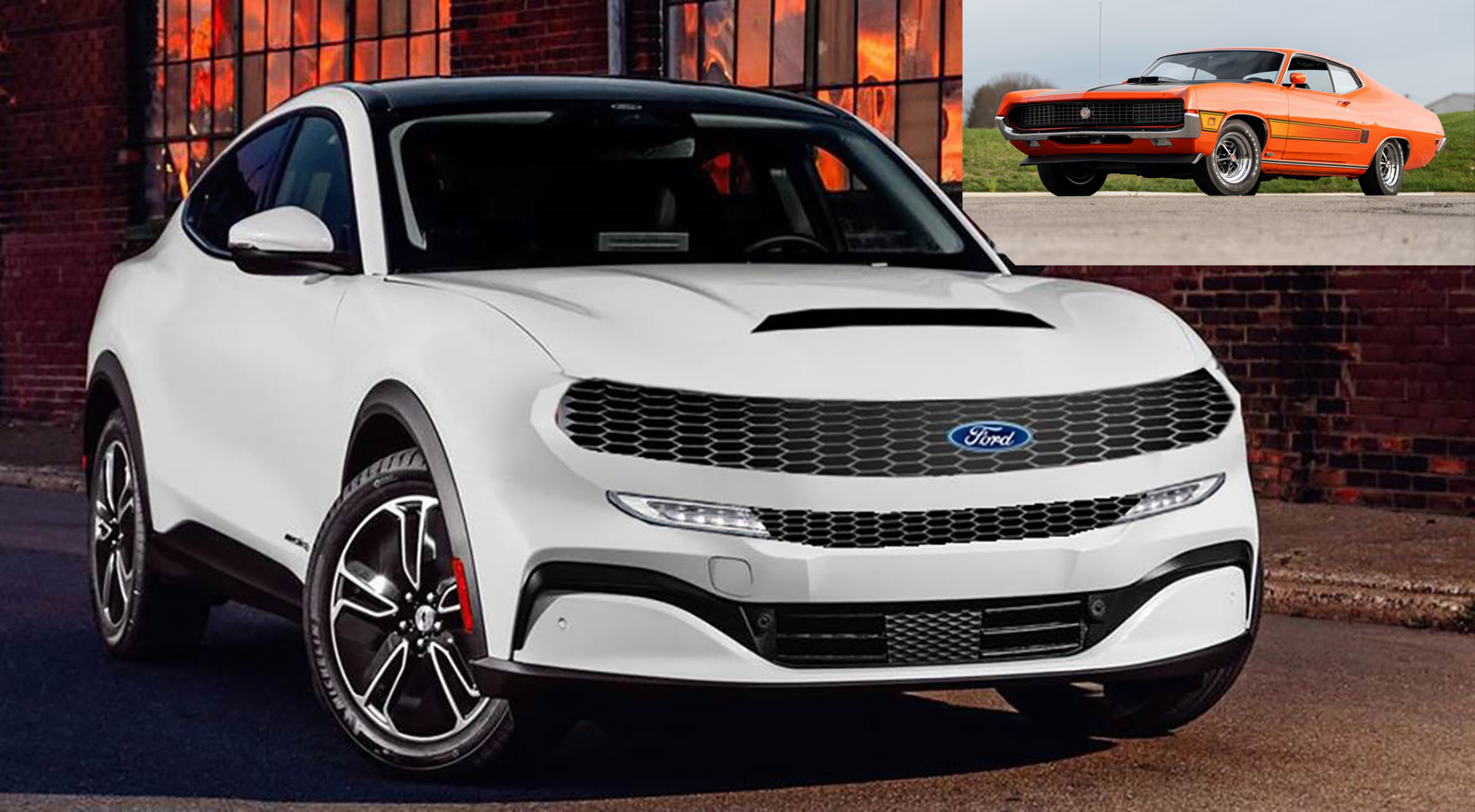
Let’s take a Mach-E and stretch the wheelbase, adding length and overhang in back to give us a decent sized bed. Sweeping “B” pillars sit behind the unmodified Mach-E front doors, with black trim blending the bed sides up to the small spoiler above the rear window. I’m hoping those black areas behind the front doors could be real glass windows and not the fake ones that people seem to despise.
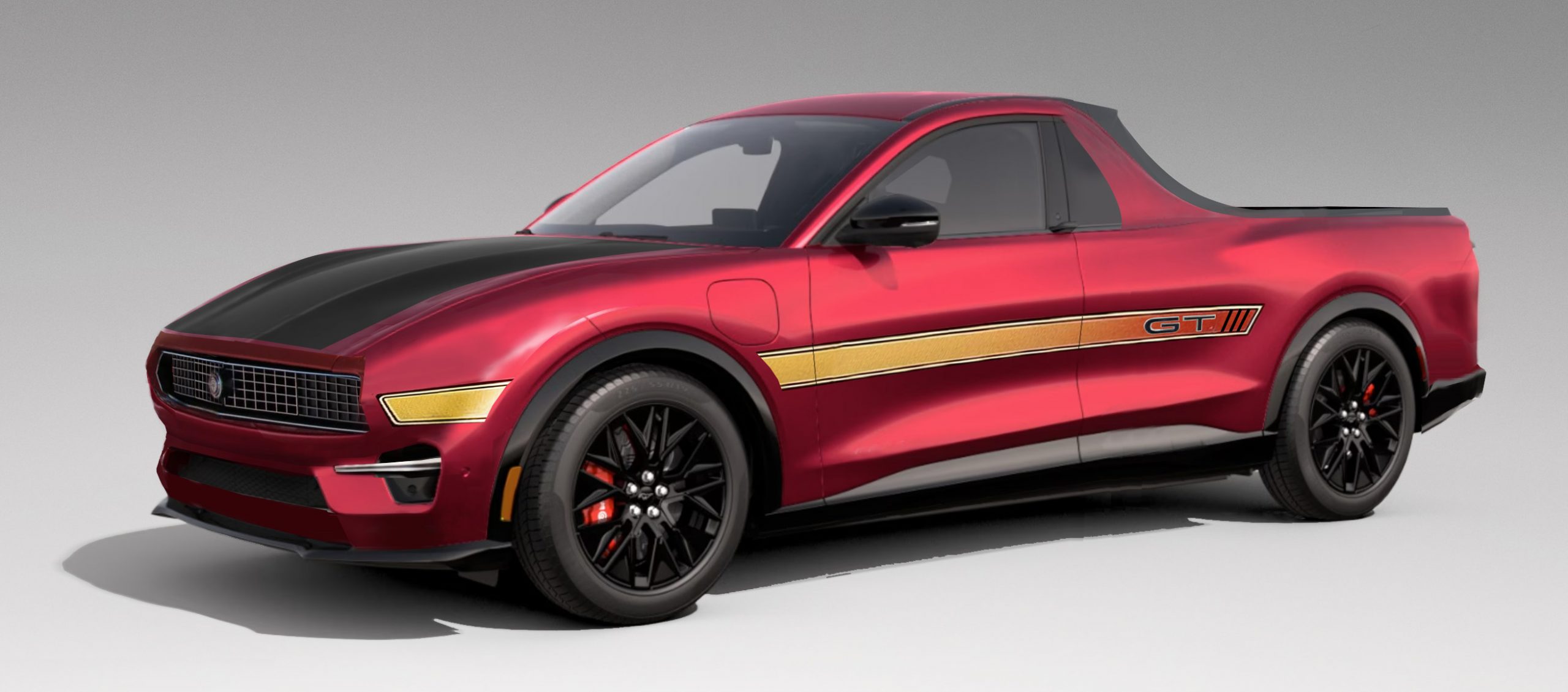
Let’s see an animation of the changes to a Mach-E to make our new coupe ute:
How could I not mention the optional “GT” graphics with black low-glare hood and, more importantly, the sinister full-width grille from the 1970 Ranchero? We could incorporate exposed LED lights into it but where would the fun be there? Electric powered headlight doors, people!
In back, the lights flanking the tailgate are reminiscent of the crescent-shaped Torino-wagon units on Rancheros from the fourth generation forward.
You can see in the animation how the length and wheelbase have changed to give us what amounts to a Real Pickup Bed.
That extra length? What could go below it? Is that more room for extra batteries or even a range-extending motor? I’m just putting it out there.
Three Seats To The Wind
We already know that without a rear seat our Ranchero will have a good-sized pickup bed, but two seats really limits your market for any vehicle. My answer for how to get extra passenger space was inspired by an insightful post from our Thomas Hundal about how EV’s lack of transmission tunnel means you could easily bring back front bench seating in modern cars. I’m not sure about a full bench, but our Ranchero might have a “normal” driver’s seat and then a wider two passenger bench seat, similar to what Matra did with their three-across Bagheera and Murena sports coupes.
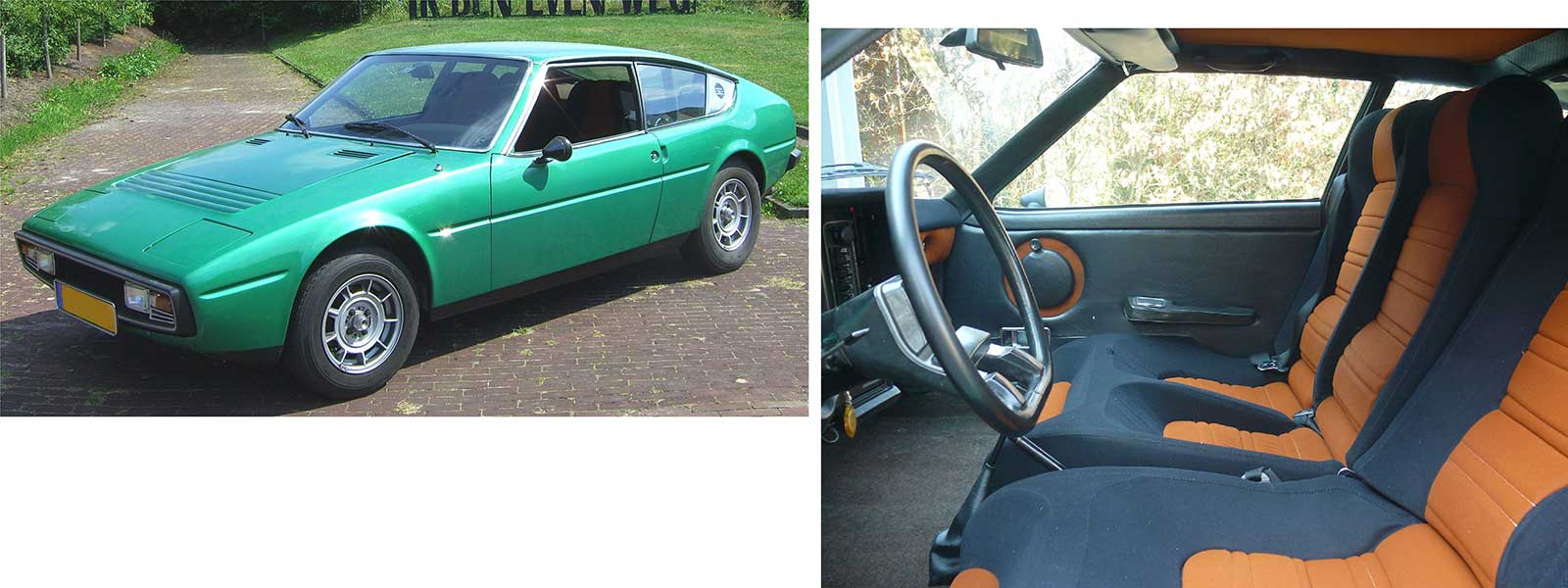
It’s a brilliant idea where instead of adding a terrible “2+2” rear seat where maybe one person can realistically sit sideway, just have that third person sit up front in a rather normal manner. You’d be Spirit-airlines-tight with big adults, but the ability to take three occupants in a pinch is a world apart from a two seater.
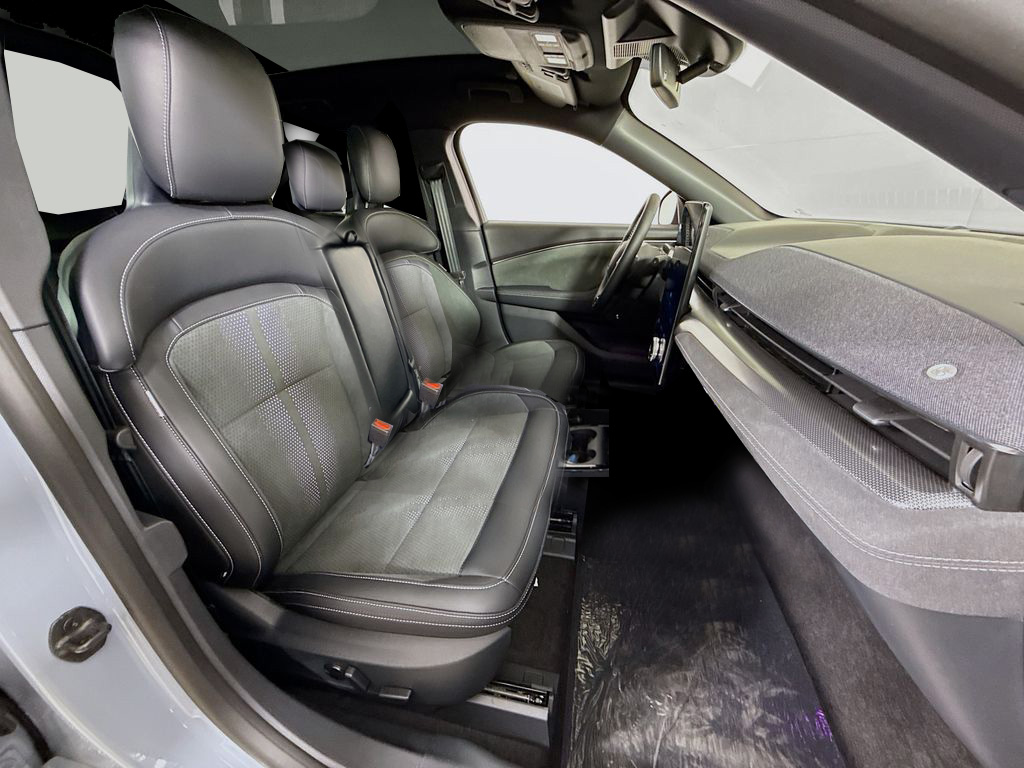
The splits needed to make three independent seats would be too much for the width of the Ranchero, so we’ll make a two person “bench” next to the separate driver’s seat. A fold-down armrest acts as a reasonably comfortable backrest for the middle perch, which also gets a little headrest. Cupholders from the no-longer-there console now slide out from under the center seat. That armrest might have storage area in it.
Here’s an animation of the Mach-E interior changing to a Ranchero cabin:
Let’s take a look at the Mach-E dashboard below. We wouldn’t need to make any major changes from the Ranchero since there’s already wide-open space in the center below the central screen.
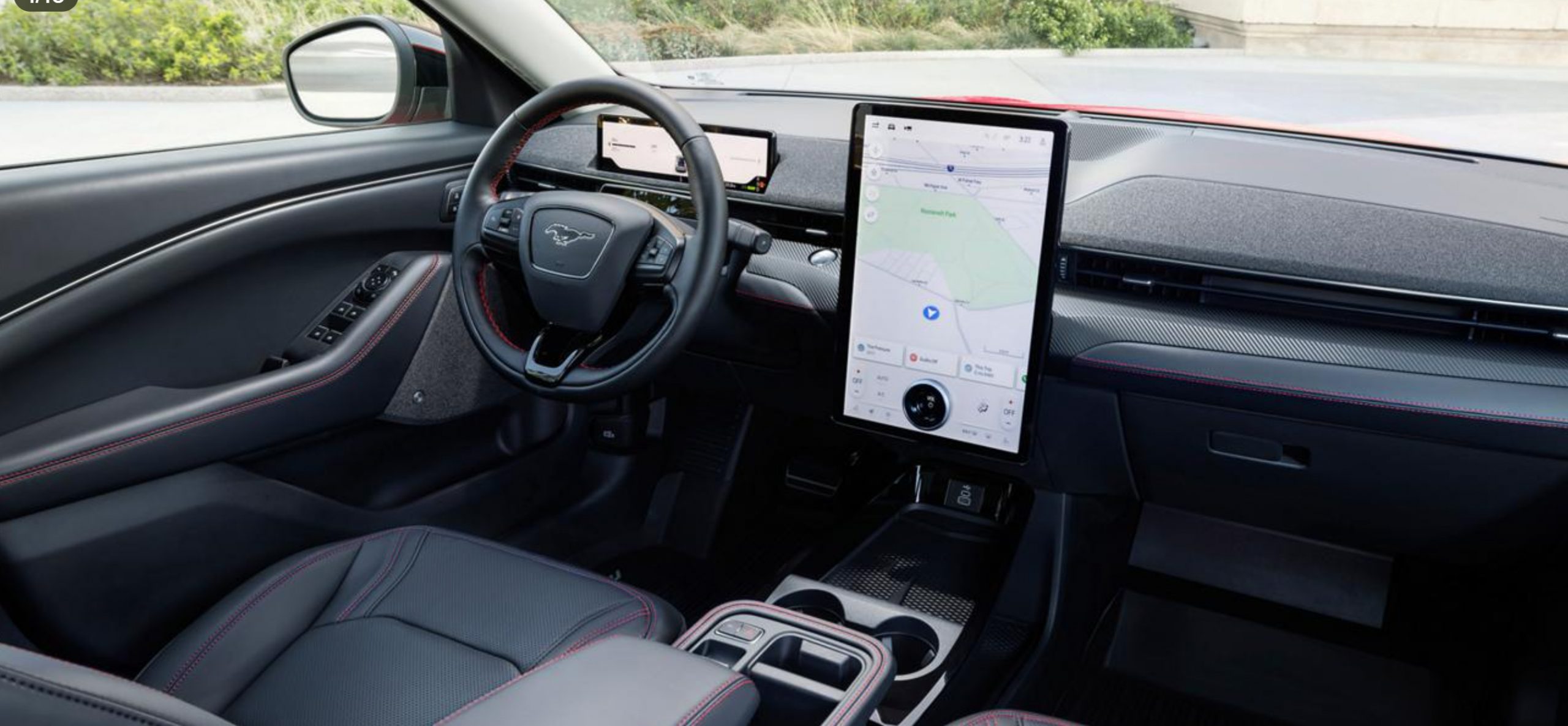
That’s good news since I’d think the Ranchero would still be a rather low volume proposition that you’d hate to tool up a new instrument panel for. Below you can see the Ranchero interior with two-person bench on the right, and all of the leg room in front of it (naturally some kind of shield to keep things from the passenger’s side floor off of the gas pedal). Optionally, we’d offer some kind of phone holders/wireless chargers since the console is gone now.
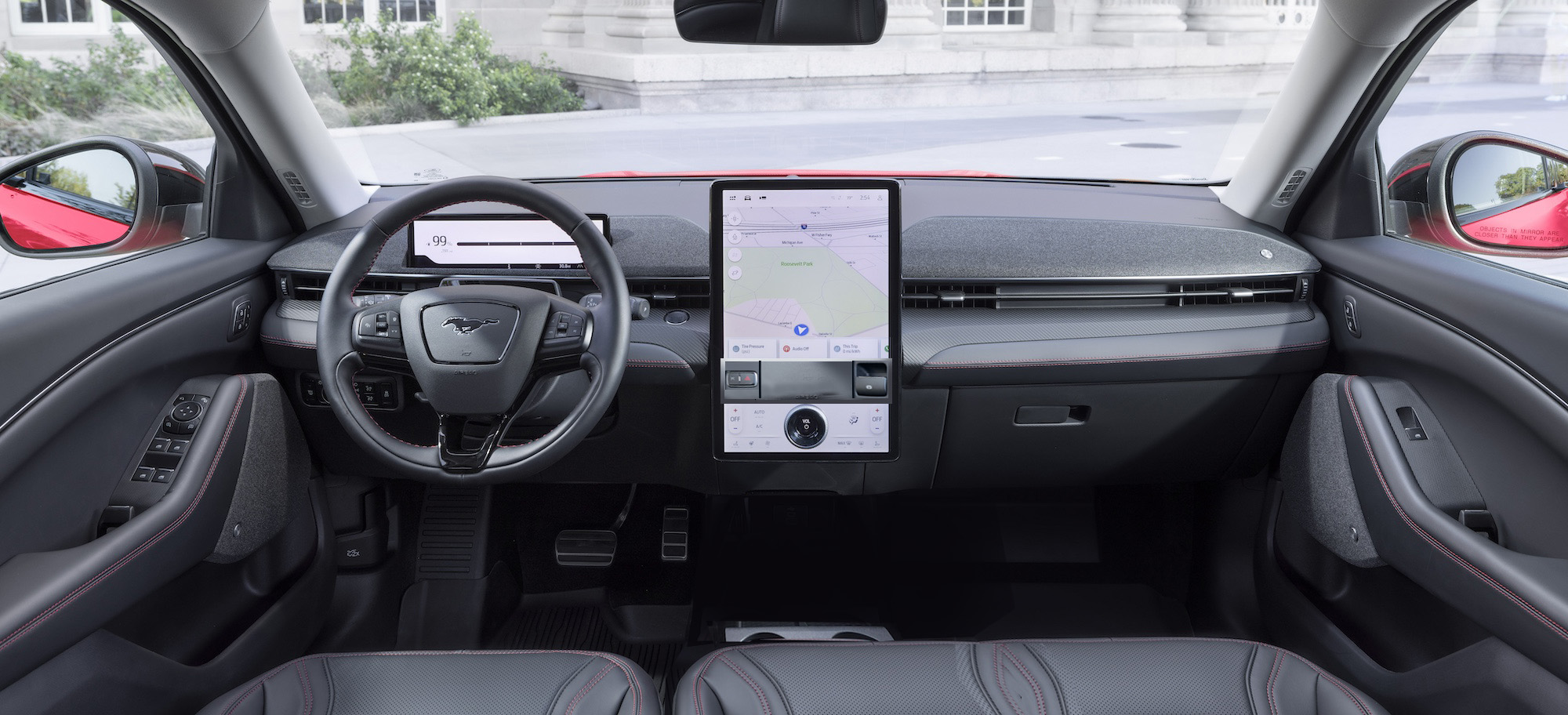
I’m not sure if an airbag is required for a center front seat passenger but if bench front seat cars got popular, I have a feeling that it might be. What I’ve done is added a surface-mounted box onto the middle of the main screen that incorporates that airbag as well as the hazard flasher and parking brake control that will be displaced from the Mach-E’s now-no-longer-existing console.
The big benefit of a Mach-E based Ranchero would be the frunk – imagine a coupe ute with a real weatherproof trunk! Of course, the heat pump on the latest Mach Es is reducing luggage space if they can’t relocate it, but it’s still space that the big old gas-powered models didn’t have for luggage or, you know, shrimp of unknown origin or age.

Also, considering that this Ranchero would be built off of a Mach-E in the same way that old Rancheros were formed from Torino wagons and El Caminos from Malibu estates, this new model would also feature those earlier model’s “smugglers bins” that use the footwells of the no-longer-there back seat for hidden indoor storage behind the front seats. Without the driveshaft tunnel of the old Ranchero, that space would run the full width of the cabin, in effect creating another “trunk space”.
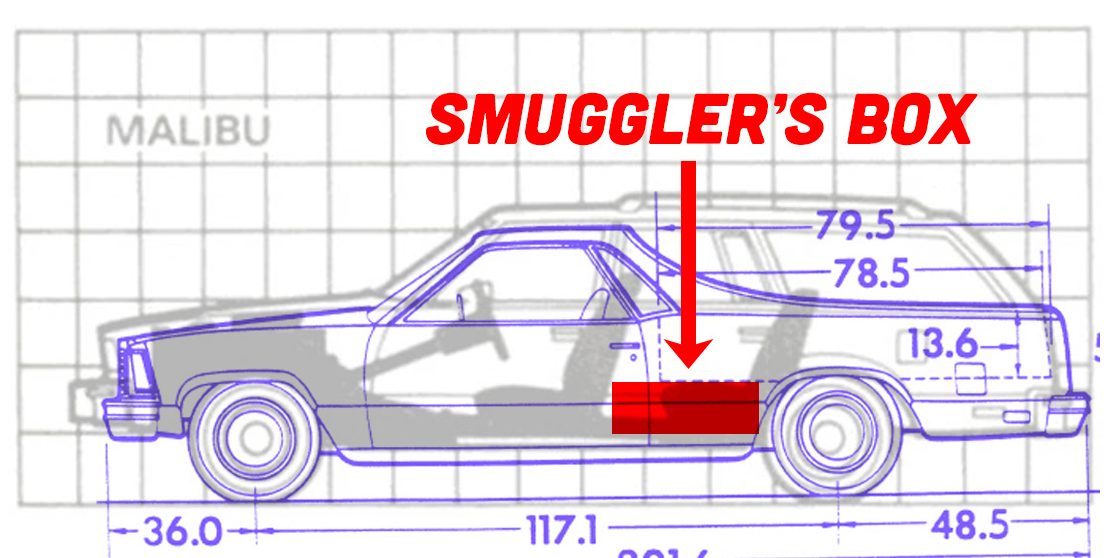
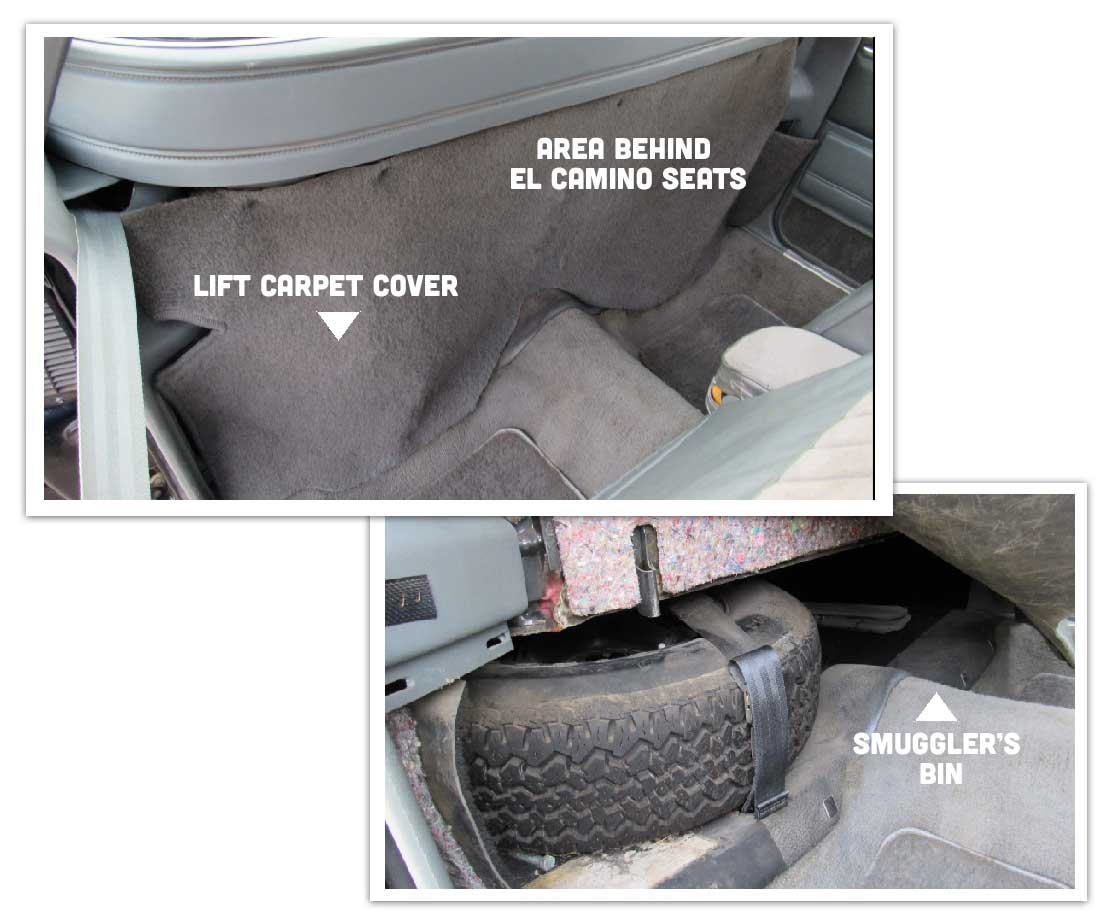
If you really do need four- to five-passenger seating capacity and don’t care about a decent-sized bed, the Maverick would still be the Ford compact truck to choose. Still, if you’re looking to take the EV plunge and your values and needs are more cargo- and style-based, this Ranchero would be an excellent option that nobody else could give you. Unless GM would make my El Camino redux, that is.
Is The Compact Sport Truck The New Sports Car?
Is there room for a coupe ute in today’s market? They were never big sellers when they were discontinued forty years ago, so why should they succeed now? I still don’t think it would match the success of a Maverick by any means, but this new Ranchero could possibly resonate with more buyers than it did back in the day.
First, the “frunk” and big “smuggler’s trunk” was something those old Rancheros never had. Also, trucks are much more accepted now than they were back then; you’ll have an easier time selling a pickup to the public now than any sports car. Honestly, in terms of image and performance capabilities, would this new Ranchero be the modern equivalent of a sports machine? Neck snapping GMC Syclone-like acceleration, decent handling and occasional extra seating could make it a practical yet stylish young person’s “lifestyle” vehicle or a midlife crisis car for the modern fortysomething.
Come on, Ford. It’s time to take back the niche category you created almost seven decades ago. Do you have to wait for a new El Camino to goad you into doing it?

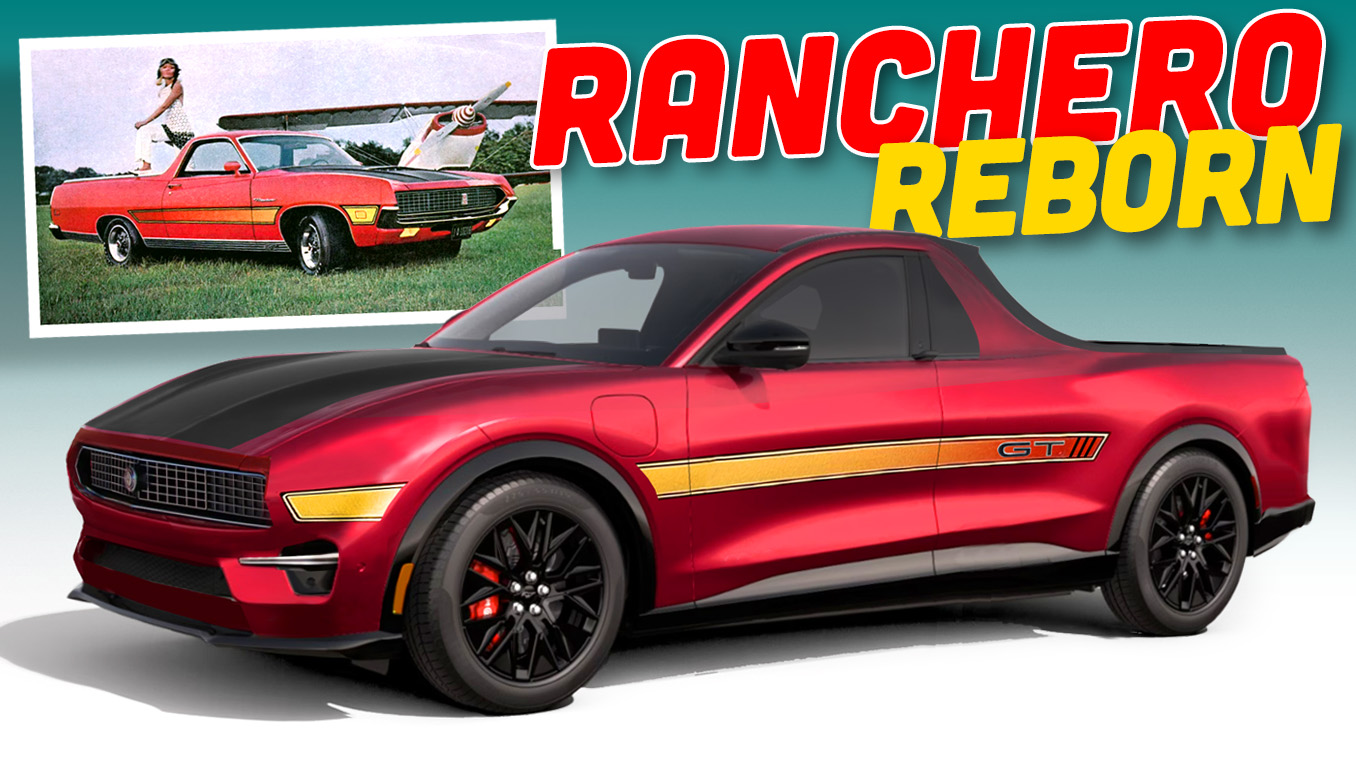
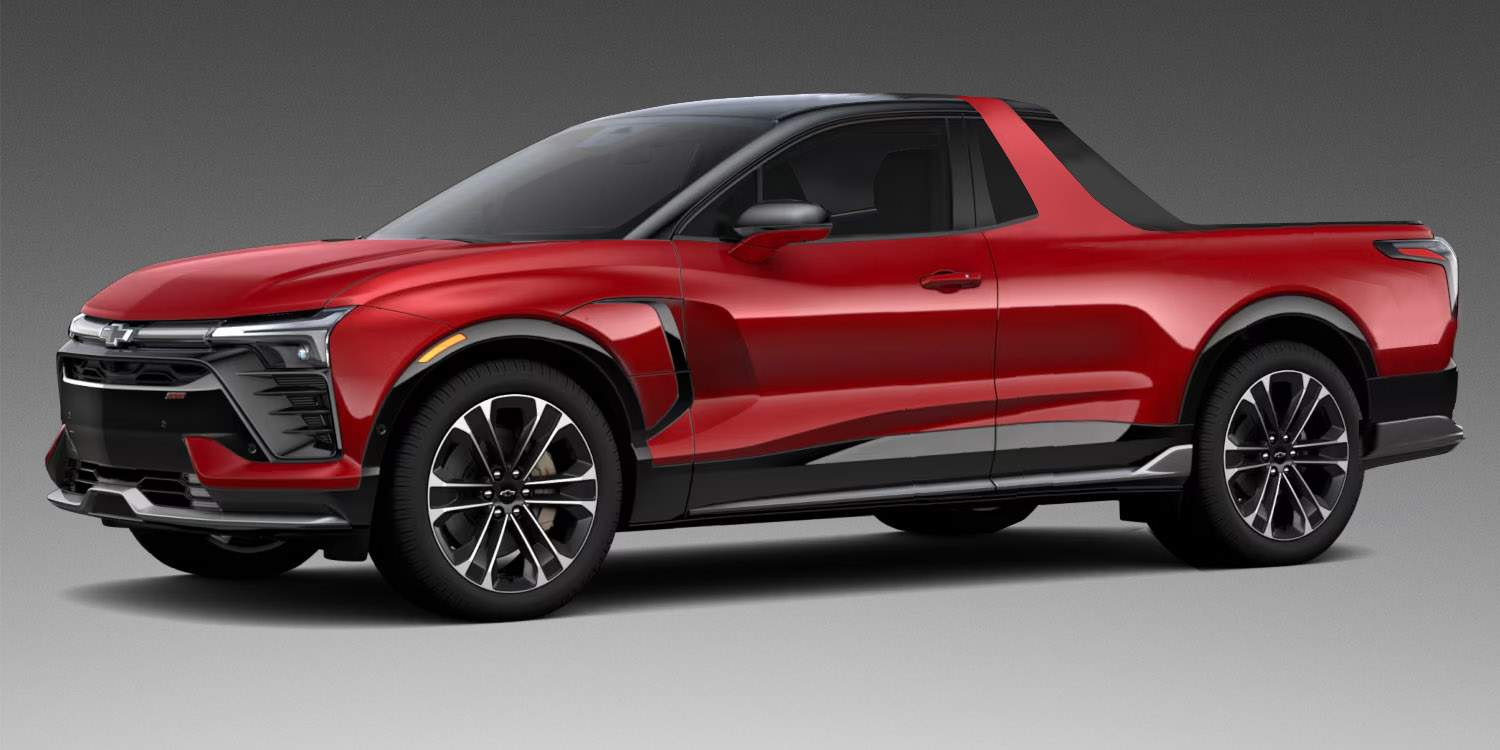

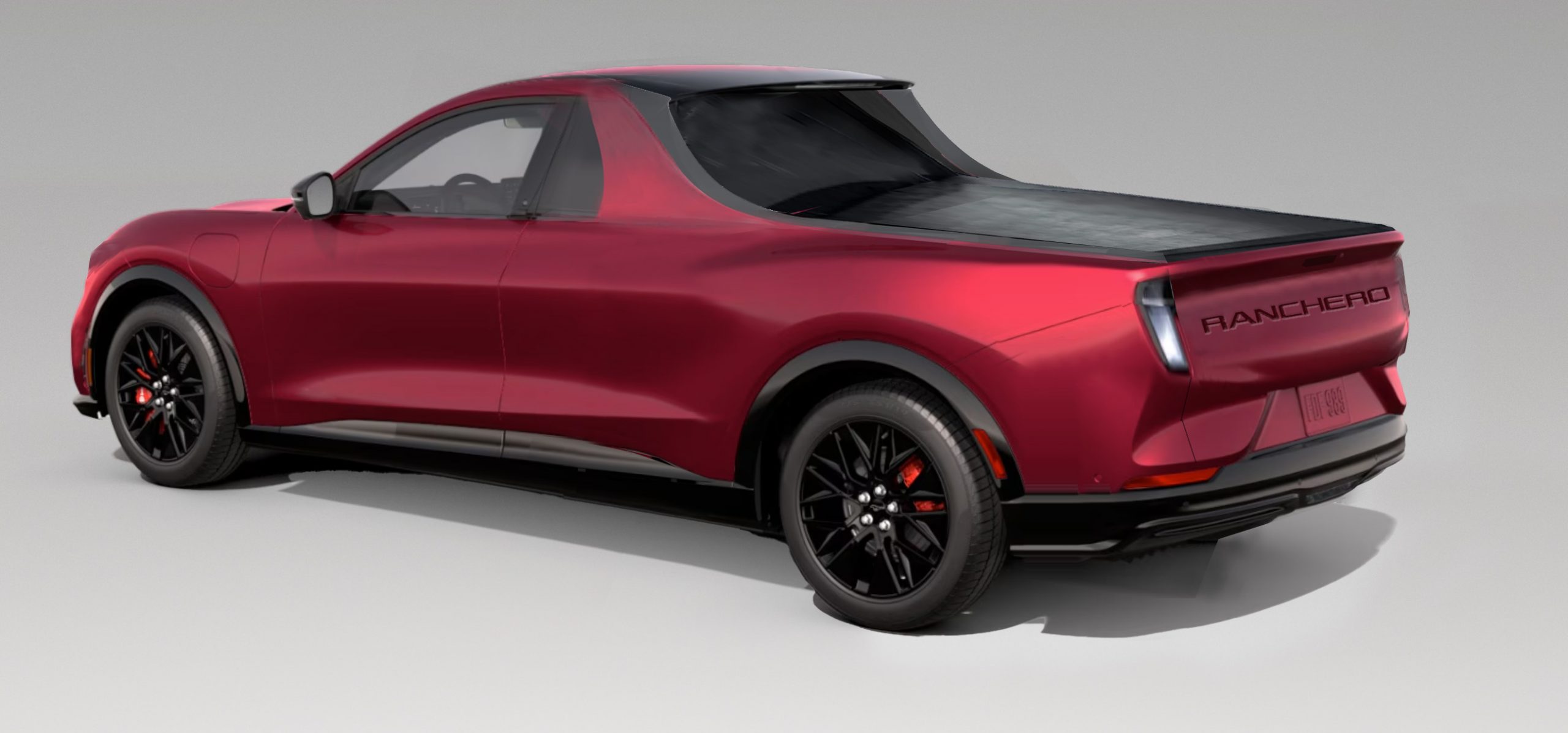


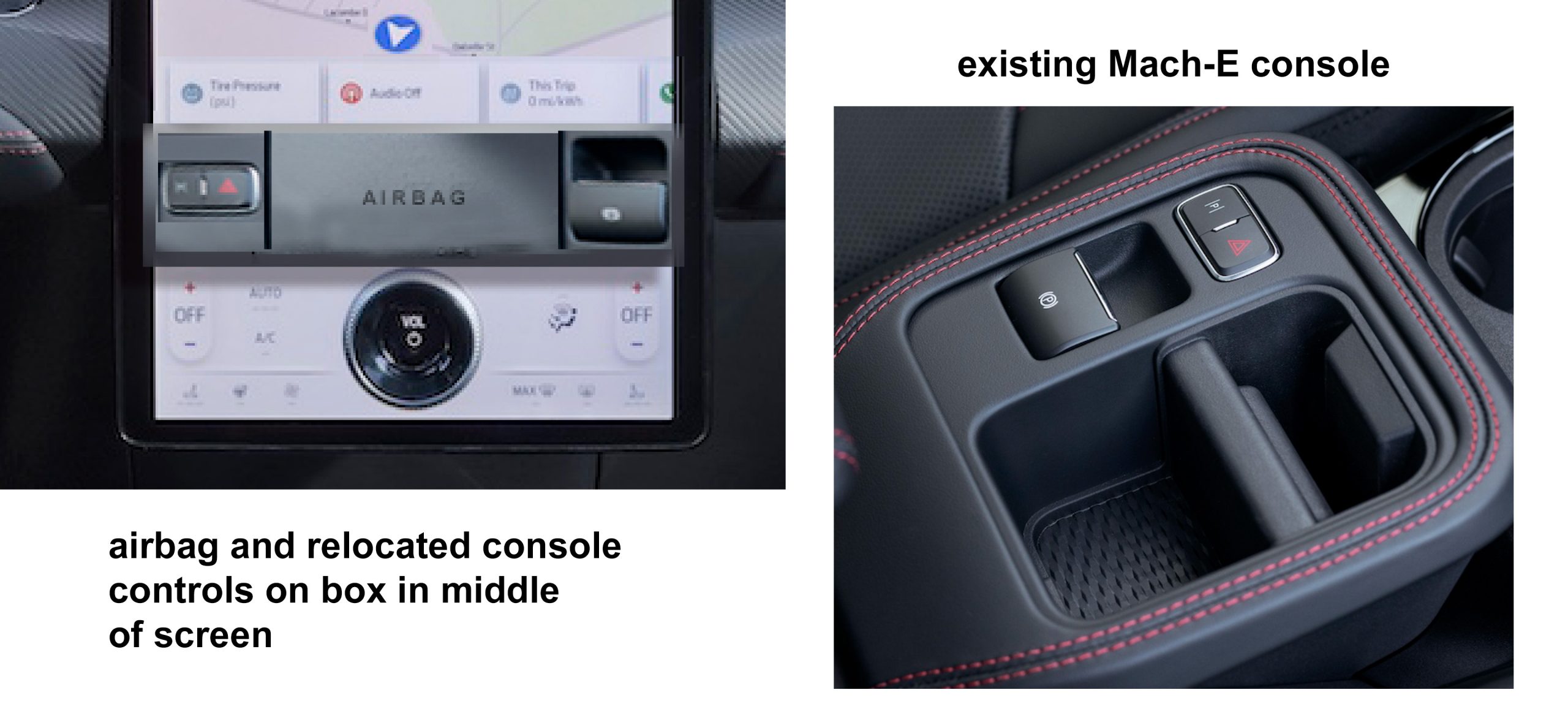







I think your design looks great… but I’d want an EV version.
IMO they just need to get the Maverick cost and price back down, they already have a small pickup that people want super bad.
Does anyone else think the cowboys in the 1960 Ranchero ad are out of proportion? There is no way the cab is that spacious, right?
Congratulations! You have successfully designed the Santa Cruz before Hyundai turned it into a 4-door abomination!
This would be great, Ford has already paid for the powertrain tooling for the Mach E.
I think it looks GREAT! They would sell dozens. DOZENS!
Aren’t headlight doors banned at this point? Seems like with LEDs you could just make them shine through the grate and skip the bother of actual moving parts. But I love the look either way.
It would sell dozens plus one.
You can sell handfuls of just about anything.
Headlight doors are still a thing – Jason got excited about the ones on the Volvo EX90 a couple of years ago.
That’s not at all the same thing. Fundamentally, what Volvo is doing is no different than the various “steering” headlights. The external lens is NOT moving or being covered up, just the internals bits. I am pretty sure that external moving doors are effectively, if not explicitly banned at this point. Euro pedestrian safety regs have banned popup headlights. Again, not sure if actually explicitly, but certainly effectively. And no reason for them anymore anyway.
I can only imagine what one of those Volvo bad boys is going to cost to replace when it breaks (or you crash the thing).
This is brilliant! I’m especially loving the headlights behind eletrically operated doors.
Likely vacuum activated.
Vacuum actuation on an EV would be something deliciously old-school German to implement. Should make the door locks and whatnot vacuum as well! They are so *quiet* (especially when they stop working). For extra bonus points, figure out how to make the shutoff vacuum actuated as well.
Can you tell I once owned a Mercedes w123? 🙂
You mentioned the three-seater Matra Murena, which I believe Jeremy Clarkson referred to as a useful vehicle for a Frenchman to carry both his wife and mistress. Maybe Hammond said that.
Ranchero: For the Open Minded.
The craziest thing about that Matra was the gearstick located between the legs of the most proximal passenger.
I’m sure it seemed logical in France.
Probably so that the aforementioned Frenchman could offer his wife a gallic ¯\_(ツ)_/¯ when caught with his hand in his mistress’ lap.